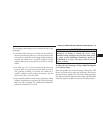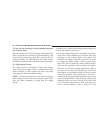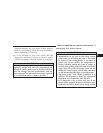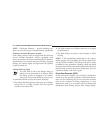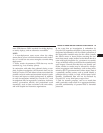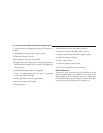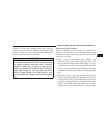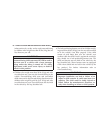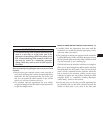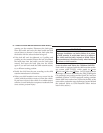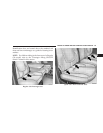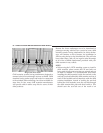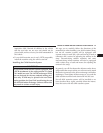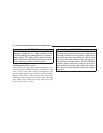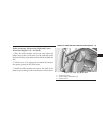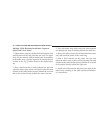
WARNING! (Continued)
•
A rearward-facing child restraint should only be
used in a rear seat, or in the front seat if the
passenger’s front airbag is OFF. If the airbag is left
ON, a rearward-facing child restraint in the front
seat may be struck by a deploying passenger
airbag which may cause severe or fatal injury to
the infant.
Here are some tips for getting the most out of your child
restraint:
•
Before buying any restraint system, make sure that it
has a label certifying that it meets all applicable Safety
Standards. We also recommend that you make sure
that you can install the child restraint in the vehicle
where you will use it before you buy it.
•
The restraint must be appropriate for your child’s
weight and height. Check the label on the restraint for
weight and height limits.
•
Carefully follow the instructions that come with the
restraint. If you install the restraint improperly, it may
not work when you need it.
•
The passenger seat belts are equipped with Automatic
Locking Retractors (ALR), which are designed to keep
the lap portion tight around the child restraint so that
it is not necessary to use a locking clip.
Pull the belt from the retractor until there is enough to
allow you to pass through the child restraint and slide
the latch plate into the buckle. Then pull on the belt
until it is fully extended from the retractor. Allow the
belt to return to the retractor, pulling on the excess
webbing to tighten the lap portion around the child
restraint. Refer to ЉAutomatic Locking Retractors
(ALR) Mode,Љ earlier in this section.
•
In the rear seat, you may have trouble tightening the
lap/shoulder belt on the child restraint because the
buckle or latch plate is too close to the belt path
THINGS TO KNOW BEFORE STARTING YOUR VEHICLE 63
2



